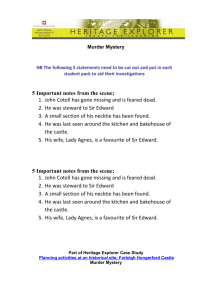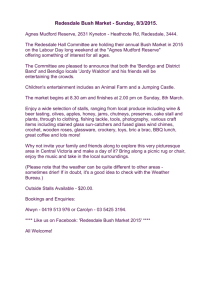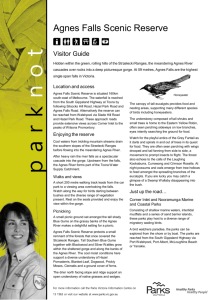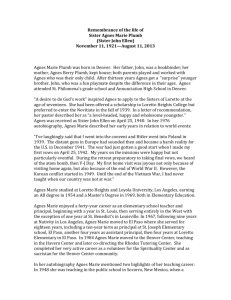Murder Mystery plot and characters
advertisement
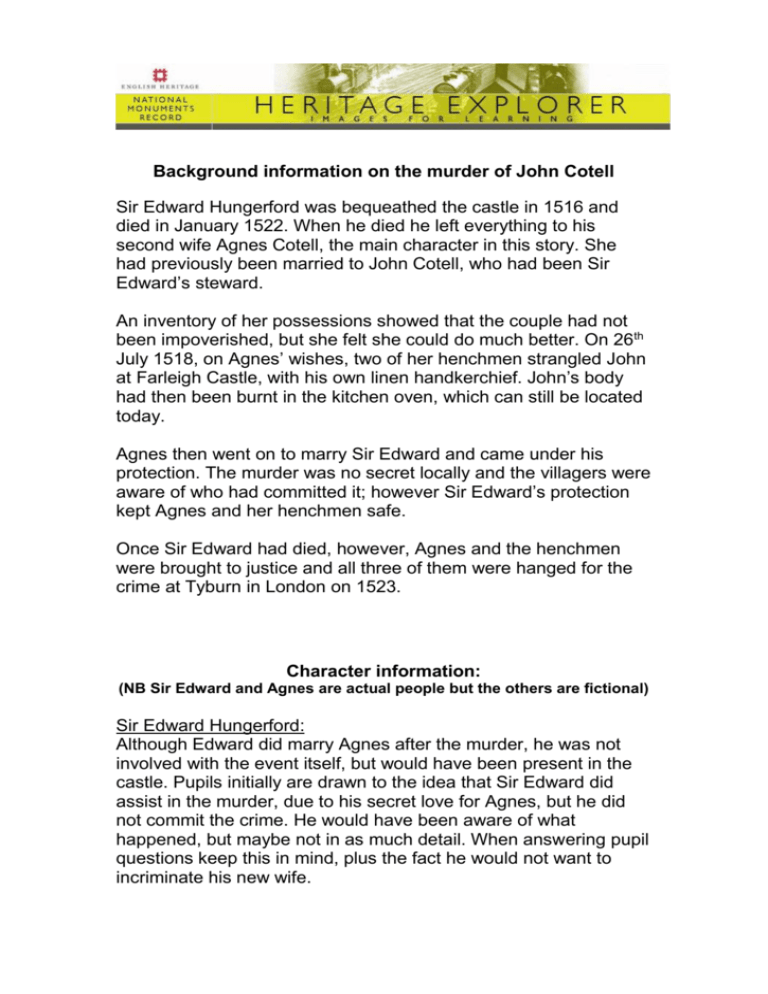
Background information on the murder of John Cotell Sir Edward Hungerford was bequeathed the castle in 1516 and died in January 1522. When he died he left everything to his second wife Agnes Cotell, the main character in this story. She had previously been married to John Cotell, who had been Sir Edward’s steward. An inventory of her possessions showed that the couple had not been impoverished, but she felt she could do much better. On 26th July 1518, on Agnes’ wishes, two of her henchmen strangled John at Farleigh Castle, with his own linen handkerchief. John’s body had then been burnt in the kitchen oven, which can still be located today. Agnes then went on to marry Sir Edward and came under his protection. The murder was no secret locally and the villagers were aware of who had committed it; however Sir Edward’s protection kept Agnes and her henchmen safe. Once Sir Edward had died, however, Agnes and the henchmen were brought to justice and all three of them were hanged for the crime at Tyburn in London on 1523. Character information: (NB Sir Edward and Agnes are actual people but the others are fictional) Sir Edward Hungerford: Although Edward did marry Agnes after the murder, he was not involved with the event itself, but would have been present in the castle. Pupils initially are drawn to the idea that Sir Edward did assist in the murder, due to his secret love for Agnes, but he did not commit the crime. He would have been aware of what happened, but maybe not in as much detail. When answering pupil questions keep this in mind, plus the fact he would not want to incriminate his new wife. Lady Agnes: Agnes was central to the murder of her husband, however it is important to highlight that she did not carry out the crime and was not present. She is therefore the reason John Cotell was murdered, but not the murderer. She would know the plan and wanted desperately to better her life. She has a secret love for Edward also, although largely based on his wealth. Michael- The henchman: Michael is an important character for this story, as initially many pupils dismiss his importance, but he was one of the two henchmen that committed the murder. It needs to be highlighted that he was loyal to Lady Agnes and would do anything to protect her. He worked for her, but there was no romantic attraction. Mary- The servant: From the outside it would appear Mary is a less useful character, as she was not involved in the event and is essentially fiction. However as a servant girl she knows all the gossip of the castle and can be used to give lots of information to the pupils. On the night in question she was clearing up from a feast in the great hall and would have been near the area on the night in question. For this character you have the flexibility to use her how you like. Jack- The spit boy: Jack is also a flexible character. He is important as he witnessed a conversation between Lady Agnes and Michael discussing the murder and how they are going to carry it out. He also saw Michael washing blood and ash off of his hands. Jack can be used with lower ability groups to give more information on the murder and who was involved. Jester: The jester can be used as an additional character. For G&T he can be used to make the plot thicker and for SEN can be used to assist with more information. Part of Heritage Explorer Case Study Planning activities at an historical site; Farleigh Hungerford Castle Murder Mystery
